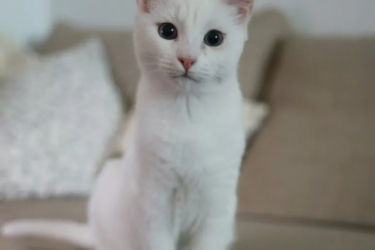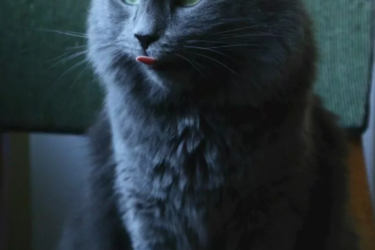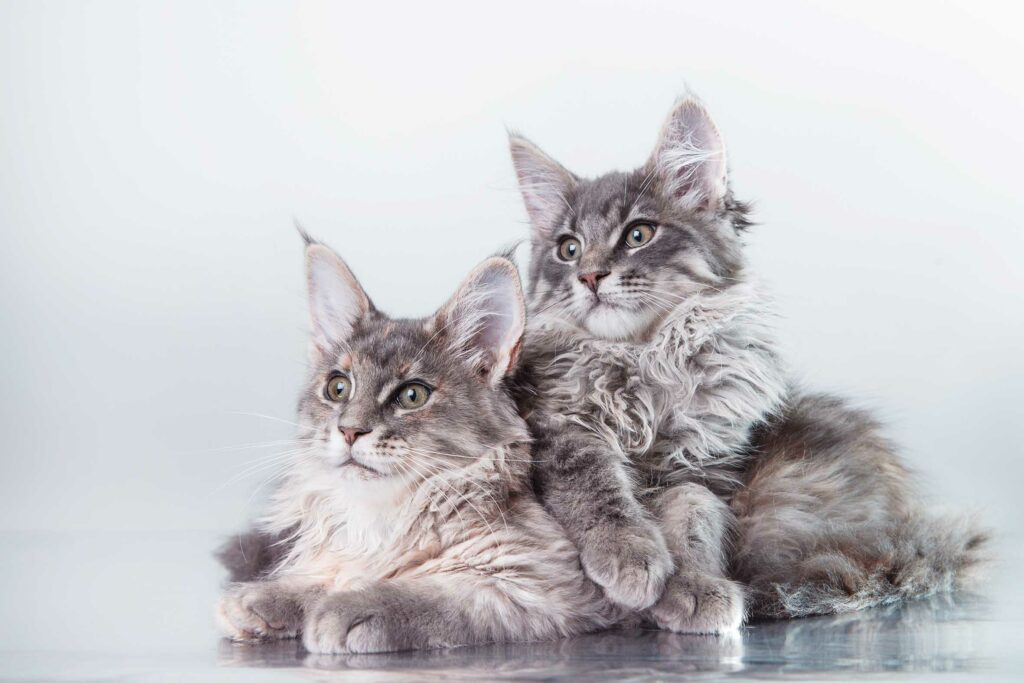
The Maine Coon
The Maine Coon is one of the most popular cat breeds in the world. Why? Its a very fun breed. Maine Coons are beautiful, sweet and very intelligent. Want to know all about this cute breed of cat? Then read on quickly!
Origin of the Maine Coon
There are different stories going around, but it is almost certain that the Maine Coon is descended from long-haired cats from Europe such as the Norwegian Forest Cat, Persian and Turkish Angora. So a hybrid. This breed is not bred – the first Maine Coon came about completely naturally. Thus, it is one of the few natural breeds and therefore this cat breed is often very healthy.
Where does the name come from?
Maine Coons get their name from the place they originally came from – namely MAINE, a state in North America. And the rest of the name comes from a crazy fable, as it was once thought that this breed was a cross between cats and raccoons. So a combination of Maine, and racoon But that little story is not true, because it is absolutely not biologically possible to cross a cat with a raccoon.
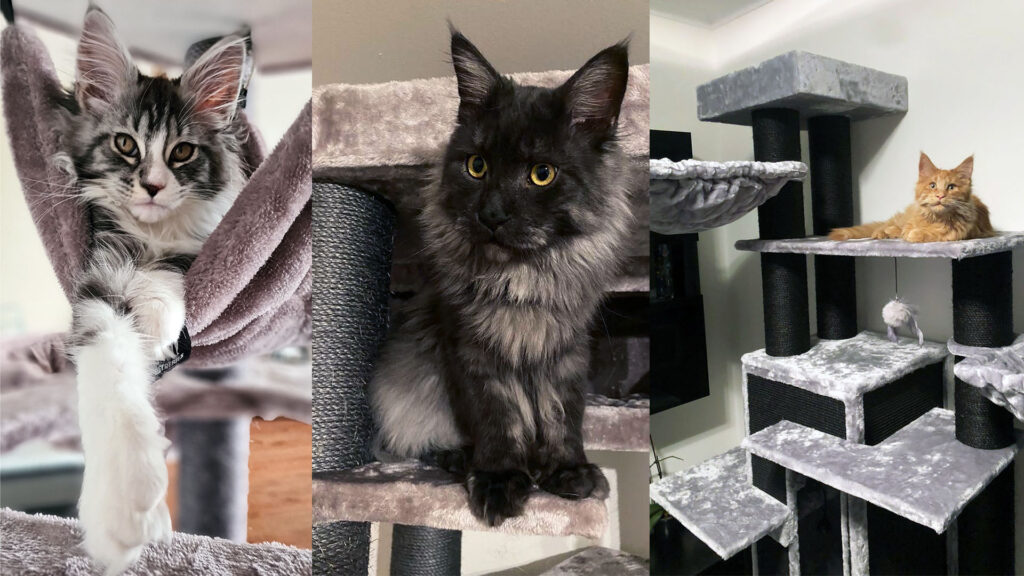
Appearance of the Maine Coon
Maine Coons are muscular and really are have impressive animals to look at. In fact, they are heavier than a regular house cat – an adult male cat can weigh as much as 9 pounds and an adult female cat about 6 pounds. Fun fact: the very largest Maine Coon in the world is Omar. He lives in Australia and is a whopping 1.20 meters tall.
Fur
This cat breed has a beautiful semi-long-haired and quite thick coat and which is very easy to maintain – as the coat is water repellent and hardly tangles. This is because this cat breed has no undercoat. The coat on the head of the Maine Coon is short, on the belly and flanks semi-long and shaggy. Maine Coons have a beautiful full plumed tail and on the ears are always cute Lynx plumes.
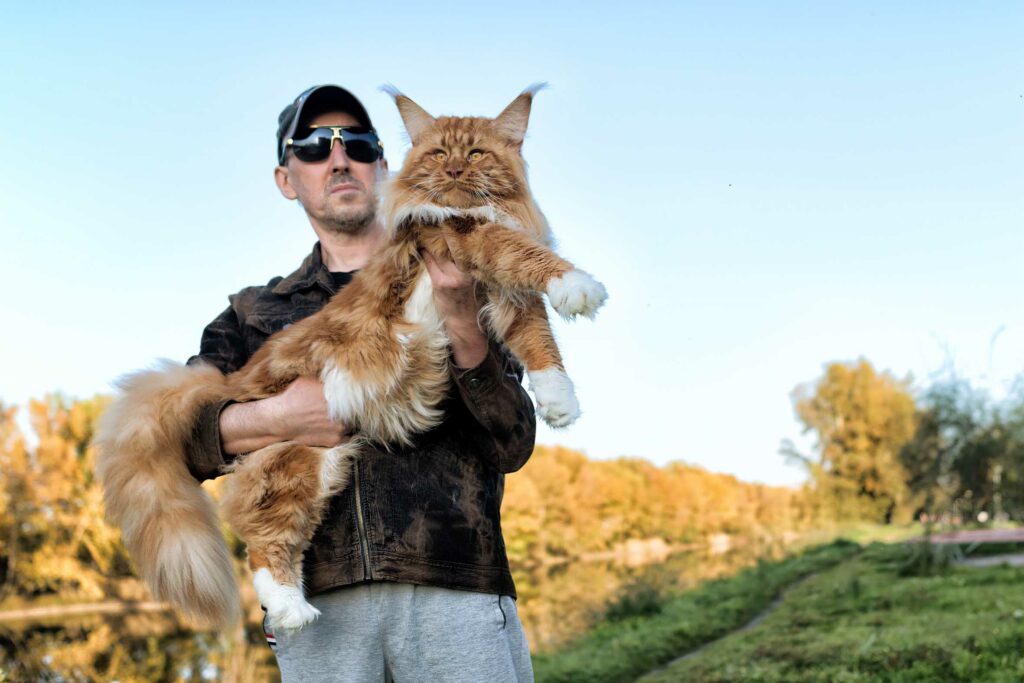
Character of the Maine Coon
If you like a cat that is balanced, then the Maine Coon is your very best buddy. In fact, this breed is friendly, always in a good mood and very tolerant. And very gentle – a Maine Coon will not easily scratch you or use its nails. Furthermore, these cats are smart, love attention and cuddling, and are very playful – some Maine Coons can even play fetch.
But behind all that beautiful hair and impressive looks sometimes lurks a pretty shy cat. Maine Coons often find new situations and strange people a bit exciting. But their curiosity overcomes so they always end up exploring or socializing.
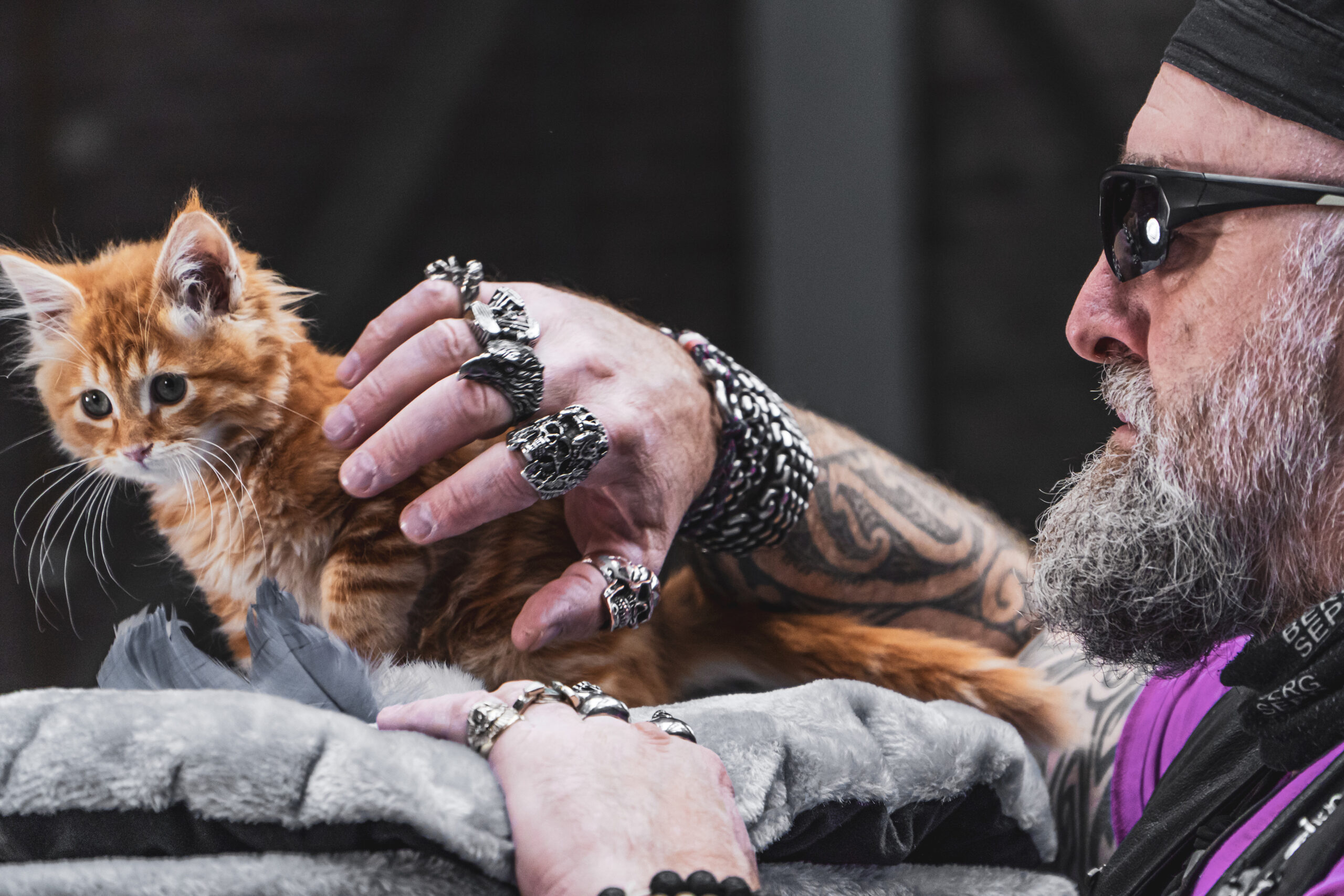
Care of the Maine Coon
Maine Coons’ coats are easy and do not require as much maintenance. A good weekly brushing will make them happy. But beware: under the armpits, tangles can still occur. So always pay a little extra attention to that.
And furthermore, this breed needs the same care as other cats – proper nutrition, a clean litter-box, fresh water every day, a proper cat tree for a Maine Coon and plenty of toys. And of course, every cat needs to be protected from fleas, ticks, communicable diseases and worms.
Diseases and disorders
Every cat can get sick or be unwell from time to time. Bladder infections, kidney disease or diarrhea are common in cats. Then, of course, you always go straight to the vet. However, although the Maine Coon is generally a strong and healthy breed, it is also
these cats may become ill or suffer from hereditary diseases.
Like Patella Laxative (PL) for instance This is a condition of one of the kneecaps of the hind legs that, if left untreated, can cause the cat to become lame.
Hypertrophic Cardiomyopathy (HCM) – a chronic disease of the heart muscle – actually occurs in all cats at one time or another. And so, too, with Maine Coons. You can recognize it by rapid breathing, shortness of breath, decreased appetite or paralysis on the hind legs.
The inherited muscle disorder Spinal Muscular Atrophy (SMA) is hereditary and manifests in Maine Coons when they are three to four months old. You can recognize the condition by muscle weakness, tremors, fatigue after exertion and a shaky gait. SMA is a very serious and incurable disease in which you should always consult a veterinarian.
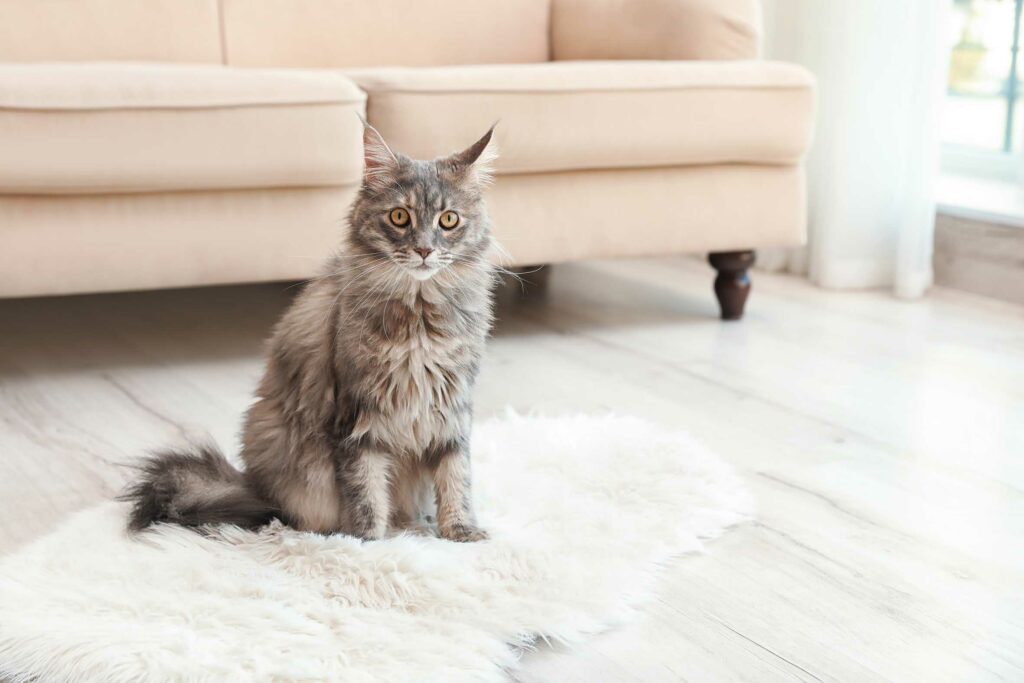
How old does a Maine Coon get?
Maine Coons develop slowly. Around their fourth year of life, their body and coat are fully grown and they are adults. On average, cats of this breed live to be 12 to 15 years old, but there are exceptions. Rubble the Cat from England – a Maine Coon cross – lived to be a whopping 31 years old!
Buying a Maine Coon
Would you like a cat from this beautiful and fun breed? Then always go to a recognized breeder who is affiliated with Rasclub Maine Coon. Because then you can be sure that you are buying a healthy cat that has been bred in an animal-friendly and honest way.
And always be well informed, because if you take a cat into your home you must be able and willing to take good care of it for many years.
Disclaimer: Petrebels is not a veterinarian or behaviorist: all content, information and tips on this blog are intended to inspire you and are informational in nature. Does your cat have any symptoms or problems? Or do you have doubts about your cat’s health? If so, always go to the vet or a behaviorist.
